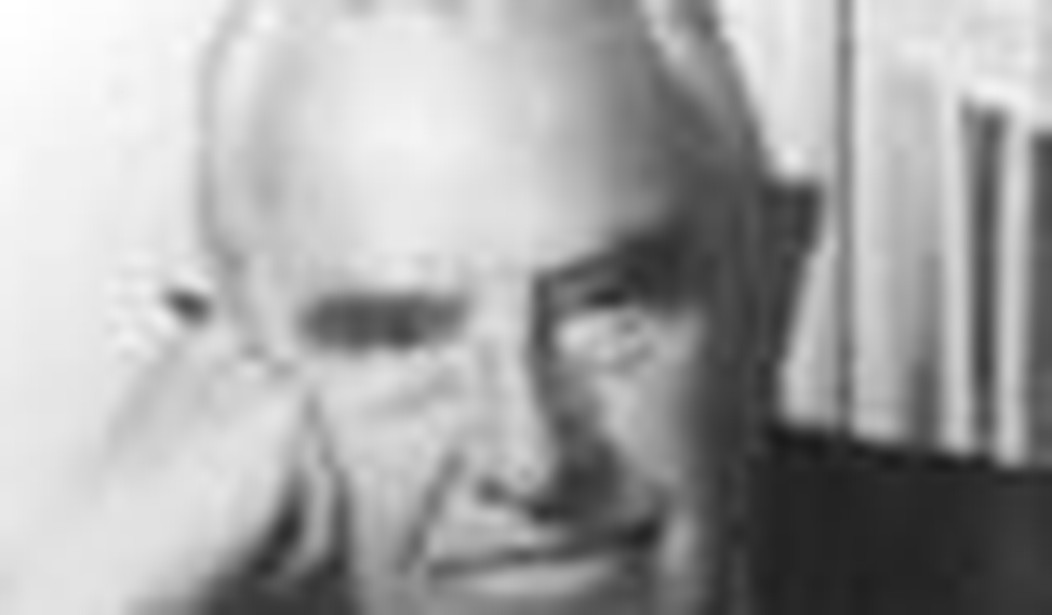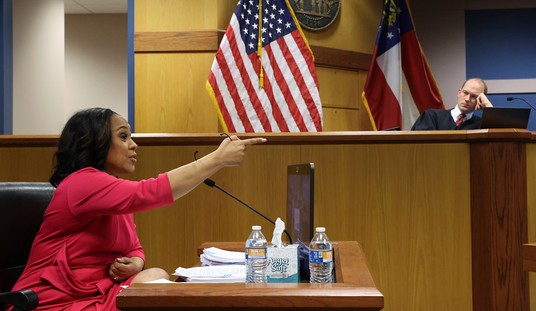Although this may appear to be a rough time for President Obama his fortunes can get a lot worse.
A growing roster of known problems plague the president. He faces low approval ratings, high unemployment, an unpopular foreign policy, and brewing political scandals on multiple fronts. James Carville says it is time for the White House to “panic.”
Chicago Tribune columnist Steve Chapman raised the ante by suggesting Obama should call it quits. Former Clinton advisor Dick Morris quoted a Democratic strategist who believes Obama could “pull a Lyndon Johnson”: tell the nation he won’t run, and will just focus on the nation’s economy.
Judging from the annals of American political history, how likely is this? And would President Obama’s temperament permit him to consider withdrawal?
Do he and his advisors understand the gravity of their perilous political standing, or are they living in an insulated bubble where only good news is delivered? And if President Obama were to withdraw his candidacy, would he do it on his own or would he have to be pushed? And exactly who could do the pushing?
Gallup’s August 28 tracking poll shows the president experienced his worst three-day average approval rating in his presidency: 38% approval and 55% disapproval from Aug. 25-27.
Independent pollster Larry Sabato says that Obama is in the “danger zone.” “He’s in the deep red danger zone. There’s no question about it,” he told PJMedia:
I’ve got to tell you his ratings are not only bad, but he’s declining at the wrong time to get re-elected.
Many Democrats — such as Missouri Senator Claire McCaskill, who also is seeking re-election — may be running away from the president. McCaskill’s aides have indicated she may not appear with Obama when he comes to her state on October 4. A Democratic campaign aide close to the senator told the Kansas City Star: “She’s going to try, but Tuesday (the day of Obama’s visit) is bad for her.”
In our republic, it’s been rare for an incumbent president to voluntarily step down. The last modern president to withdraw was Lyndon Johnson in 1968: faced with implacable opposition to his Vietnam policy, Johnson faced a hostile public and a disapproval rate of 57%, similar to Obama’s current polling. Johnson shocked the nation by announcing that he would not seek a new term in office.
For Johnson, his decision to leave the embattled presidency provided a reprieve. Author Clay Risen wrote in “The Unmaking of the President” that Johnson’s decision was electric: “It was as if someone had flipped a switch in the national psyche: in a Harris Poll taken after his withdrawal announcement the previous Sunday night, the public went from 57 percent against to 57 percent in favor of the job he was doing as president.”
However, it ‘s unlikely that a voluntary resignation “for the good of the country” could repeat itself. For one thing, Washington has changed markedly from the post-World War II days — and not for the better.
One difference between then and now: back then the nation had what were called “wise men.” These were small groups of elder statesmen who were ready to offer nonpartisan advice to any sitting president. They were public people trusted to care more about nation than political advantage.
In the latter half of the 20th century, these elder statesmen were products of New England’s upper class. They were people from industry and political life who, through their stature, could sway presidents of both parties.
In 1986, the wise men were profiled by reporters Walter Isaacson and Evan Thomas in Six Friends and the World They Made. They traced the careers of six Ivy League statesmen who changed our foreign policy from the Second World War through the Cold War: W. Averell Harriman, Robert A. Lovett, Dean Acheson, John J. McCloy Jr., George F. Kennan, and Charles Bohlen.
Eventually, there were others who offered public service over partisanship. They included people like Clark Clifford and Robert Strauss.
In one of their most visible actions, the wise men supported Lyndon Johnson in 1967 for his prosecution of the war in Vietnam. Then in a pivotal private meeting at the White House on March 25, 1968, they reversed themselves, calling for U.S. withdrawal. Their conclusion stunned LBJ: a few days later he announced his surprise voluntary decision not to seek the Democratic Party’s nomination for president.
While each had strong personalities and political views, when called upon by presidents these men put country above partisanship. They would privately advise presidents who faced monumental questions.
Lifelong Democratic strategist Peter Fenn says that the idea of a detached, independent advisor was a good thing for society: “It was somebody who had been in government, been in business, had a foot in both worlds, had nothing to prove for himself,” he told PJMedia.
Former White House Press Secretary Ron Nessen, who served under President Gerald Ford, said the nation benefited from their wisdom:
And a lot of times the wise men were not from the same party as the president, or [did not] have the same philosophy, but they did have some special knowledge or insights or experiences.
Adds Fenn: “I’d call them the 30,000 foot people. And that was the Harrimans and the Strausses. The Clark Cliffords of the world.”
And today they no longer exist. This can spell trouble for our nation as it careens from crisis to crisis.
The demise of the wise men — or some approximation of it — is an interesting tale about changes in our own political culture. It can find its roots in the political upheaval of the 1960s. Young political radicals challenged the Democratic establishment, particularly its decision-making. They derided decisions made by political veterans and chipped away at the influence of the wise men. In the name of democratic reforms, they sought to change our presidential selection process.
Following the tumultuous 1968 Democratic National Convention, the Democratic National Committee formed a new presidential selection commission. To appease the anti-war wing, they appointed members from the the party’s left to its leadership. It was headed by a Senator from South Dakota named George McGovern, who pioneered the Democratic Party’s reforms.
McGovern mastered the intricacies of the new system, which became our present day primary system. And he emerged as the party’s presidential nominee. In spite of losing to Richard Nixon in a landslide, McGovern forever changed the American political landscape. This ended the special role of elder statesmen.
After the 1968 reforms, presidential primaries replaced state party conventions. At the time, two-thirds of all the convention delegates came from state nominating conventions where political veterans — elders — dominated the process. When they were liquidated by the Democratic Party, a new class — political consultants — replaced the titans of the party and its wise men.
The primary system forced Republicans to follow the Democrats with simultaneous primaries. The power of their own statesmen waned, although there are a number who still exist in the Republican Party.
At that moment, partisanship began to rule over statesmanship.
This brings us to the present and why Barack Obama will not be met by a group of wise men who will give him counsel. They are long gone. And even if they were here, it is doubtful they could convince Obama to voluntarily step down as the party’s nominee. Presidential historian Tevi Troy says that stepping down will make no sense to Obama.
Troy suspects if things get bad enough, it is possible Democratic leaders might approach the president: “From the party there might be advantages from Obama stepping down,” he told PJMedia.
However, from Obama’s perspective this would never be an option:
He would be derided as a quitter were he to leave. And let’s not forget he’s the most powerful person in the world.
Nessen agrees, saying Obama’s outsized ego would never permit this to be an option: “I can’t believe a person with a good healthy ego, which he has, is going to voluntarily step down.”
It’s also unlikely that Obama will listen to outsiders, including Senate or House Democrats. Sabato, who has followed the political fortunes of presidents for decades, calls Obama’s presidency “a very personalized presidency.” It’s one that does not seek frank advice from outsiders.
“They listen to their tested advisors,” he says. “The people who entered the fire with them personally.”
Troy, who is one of the few presidential historians to actually work in a White House (for George W. Bush), says there is a bubble that not only insulates them but puts them in denial when the polls go south.
“You can call it denial or you can call it undying belief in the possibility of your success. Yeah, when you’re in the White House you always think you can turn this around,” he recalls. “That’s how you feel when you’re inside the WH bubble.”
One of the few potential larger-than-life leaders left in the Democratic Party is Bill Clinton. Although Obama and Clinton have been seen together lately, including a September 24th round of golf at Andrews Air Force Base, Clinton doesn’t fit the mold of a detached, elder statesmen. Partisan politics is still in his blood.
“Let’s face it, they all remember the 2008 campaign which was long and divisive and bitter,” Sabato told PJMedia. “Bill Clinton said many nasty things about Obama. … Clinton remembers very well that Obama kept saying, telling his people that ‘the last thing I want to be is another Bill Clinton in the presidency.'”
Democrat Fenn agrees that people with skin in the game are not honest brokers: “One of the characteristics you would want to avoid is having someone who has a chip on their shoulder,” he says.
Sabato, the director of the Center for Politics at the University of Virginia in Charlottesville, also reveals Clinton’s own ambitions ten years after he left office. He’s no elder statesman: “They all compete with one another, too. You know Clinton is still upset that Obama got the Nobel Peace Prize. You know he’s been angling for it for years. He’s the only major Democrat who hasn’t gotten it.”
Sabato said,
They take this stuff very personally. They are competing in history, to be considered one of the top 10 presidents. They are competing against one another.
So don’t expect any non-partisan “wise men” or Democratic Party elders to emerge and ask Obama to step aside for the good of the party — or for the good of the nation. And don’t expect Barack Obama to voluntarily walk away from his presidency even as he falls in the polls. It ain’t going to happen.









Join the conversation as a VIP Member